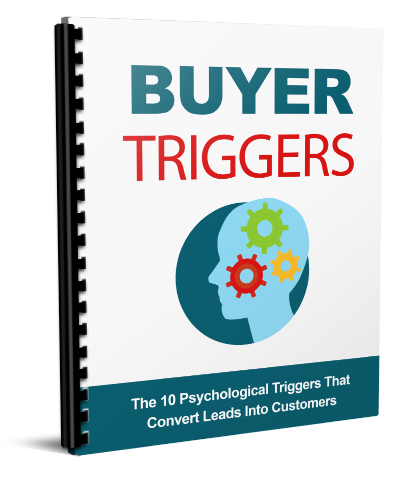Ranking well on Google is crucial if you want to succeed on the web. Learn the basics and most important steps to ranking well on Google in this article.
Everyone strives to rank on the first page, and even on the first result in Google, but few people actually know the most important parts for doing so.
If you want to learn the basics for ranking well on Google, here are nine tips about search engine optimization which will help you climb with your Google rankings, all the way to a top spot position.
1. Focus on really good content
Content is king. There’s no going around that when it comes to ranking well on Google. Before you start thinking about search engine optimization, you need to think about content.
The single most important ranking factor on Google is quality content.
It doesn’t matter how much you optimize your titles, meta-descriptions, and website if you don’t have quality content. The more energy you invest into creating really good and relevant information about your services, products and industry, the more likely will be to successfully attract customers to your site through Google.
The single most important content type is text, as this is what Google indexes, but images and videos can improve your page ranking as well. The higher the page ranking your website has, the higher up in Google you’ll rank.
Read also: Domain Authority and Page Authority Explained
2. Get links
With really good content, there is a chance that others will link to your site.
In addition to potential customers coming directly from these links, it also gives positive signals to Google, that you have an authority site with quality content that people enjoy. Remember that Google’s only goal is to present the most relevant and high-quality search results for a specific search, and if people link to your page, it indicates that your page is of high quality and relevant or that keyword.
A tip is to reach out to sites that may link to you, but you can find some more interesting strategies here.
3. Choose keywords with care
What words and terms does your customers use when they search on Google? It’s not necessarily the keywords that you might think. Google’s own free tools Keyword planner, Analytics, and Trends can give you extremely helpful insights about your customers are searching for on Google.
If you’re curious to learn more about this topic, have a look at this article about using keyword analysis to understand your Customers
4. Use “friendly URLs”
You may have heard of “friendly URLs”. It may sound strange. What does it really mean? The meaning of friendly URLs is very simple: always create URL addresses that says what the current page is about.
The domain name is important, but you also want to pay attention to the URLs of each of your pages on your website. For example, if you have a page on your website about cars, ideally that page’s URL should be: Yourwebsite.com/cars.
This does not only give greater insights for your audience, but also for Google that gets a better understanding of what your page is about.
5. Update your site frequently
There are several reasons to why you should update your site frequently. More updates provide more, current and up-to-date content, and this is something that both Google and visitors like.
Starting a blog for your website is a good idea, however, it’s simply not enough to just have a blog, you need to use it frequently as well.
Learning how meta tags work and then providing them with the right content is important. The three most important are:
Title
The page title is the first thing that the Google crawler finds when it comes to your site. It is also the thing that appears as a title in the search results on Google.
The title should contain the keywords you want to look at, and spark interest in users encouraging them to click. You have a maximum of 70 characters to do this on.
Description
Same thing here: write a short and to the point description of the content of the page. Make sure to include the most important words. The text appears on two lines under the heading of the search result. Max 160 characters.
Keywords
Now, you may be surprised, but it was a long time ago that Google cared about the keywords you included on your page.
In other words, today, they don’t matter to your ranking. Nevertheless, be sure to fill in your keywords here. Other search engines may work differently, and adding keywords also helps you keep track on your different pages.
Curious to learn more? We have resumed some important points to optimize your pages to rank higher on search engines in this article, as well as in our SEO section.
7. Select a powerful publishing tool
With a good publishing tool for your website you get a lot of free. A blogging tool like WordPress can be good, including because it’s free and has good support for meta tags.
If you want to start your own website using WordPress, you can download our free WordPress guide.
8. Update your pages
If you have many products, services, blog posts, and so on, you want to make sure that you update them every now and then to make sure that they are up-to date and relevant.
Also, as for your best-performing pages on your site, include even more helpful, valuable and thorough information to help them rank even better.
9. Think about the user experience
Follow the advice above, but do not forget that the most important part for ranking well on Google isn’t meta titles, meta tags, titles, and so on, instead, it’s the user experience.
Google’s goal is to give a great user experience to their users, and if you can provide people with that, Google will reward you with higher rankings.
Google has emphasized this and encouraged people to think about this: built your site for the users first and Google second.
Lastly, have in mind that good search optimization does not yield results overnight. You must be persistent and do the right things over and over consistently. A great compliment that brings results instantly, are Google Adwords.
About the Author
Jens is the editor-in-chief and co-founder of Veloce International marketing blog and the influencer marketing directory Veloce Network. He is a social media and marketing nut, sharing his passion for online marketing and business in his articles.









